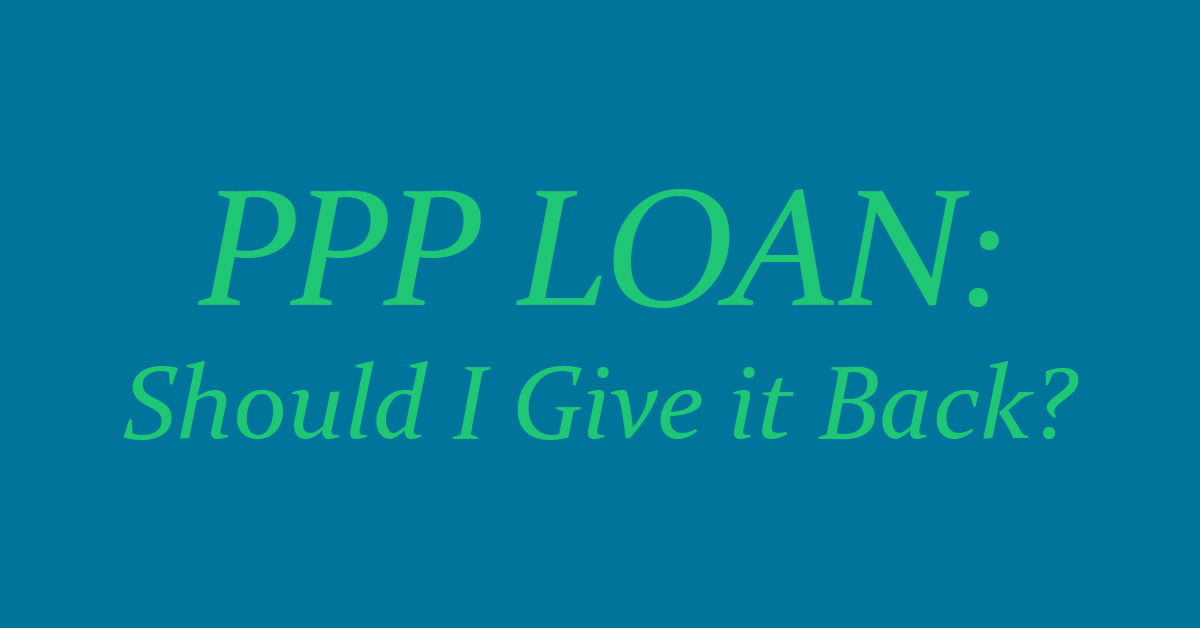The Coronavirus Aid, Relief, and Economic Security Act (CARES Act) required PPP loan applicants to certify that “current economic uncertainty makes the loan request necessary to support the ongoing operations of the applicant.” This seemingly low threshold, coupled with the SBA interim final rule that applicants were not required to demonstrate a lack of available credit elsewhere, attracted applications from millions of small businesses for billions of dollars in potentially forgivable loans.
Recently, in response to high profile abuses of the program (such as Shake Shack’s $10 million loan), the SBA added an online FAQ indicating that borrowers must make the “necessary” certification in good faith by “taking into account their current business activity and their ability to access other sources of liquidity sufficient to support their ongoing operations in a manner that is not significantly detrimental to the business.” The FAQ included an example of a public company with a substantial market value and access to capital markets that would “unlikely” satisfy the “necessary” certification. This marked a significant change from the plain language of the “necessary” certification and the SBA rule that did not require a lack of available credit elsewhere.
The vague and ex post facto nature of this new guidance has caused concern and confusion for small businesses that have already accepted and used portions of their PPP loans. While it is expected that the SBA and Treasury Department will provide additional guidance, for the time being, the definitive meaning of “necessary” remains unknown and unclear. Furthermore, borrowers have a deadline of May 14 to repay their PPP loan proceeds if borrowers cannot make the “necessary” certification in good faith.
The SBA stated it would review all PPP loans made in excess of $2 million as well as smaller loans “as appropriate,” presumably using data analytics and formulas to pinpoint which small-sized loans to review. Also, borrowers should be aware that the Department of Justice will undoubtedly become involved when abuse is identified by the SBA. In fact, on May 5, the DOJ announced that two New England men were charged with seeking more than $500,000 in fraudulent PPP loans after falsely claiming to have dozens of non-existent employees.
Three ways to protect businesses and their owners
Given the uncertainty associated with the PPP and the vagueness around the meaning of the “necessary” certification, what can a small business owner do to protect the business and the business owner individually?
First, no business owner should try to navigate the PPP maze alone and should contact a legal professional for guidance through the potential traps and misdirection. Moreover, if any PPP borrower is unsure of whether they made the “necessary” certification in good faith, the borrower should return the loan proceeds prior to May 14 in order to avoid facing any government scrutiny. A borrower should not wait to see if this date will be extended.
Second, the business owner should document everything. This applies to documentation needed for establishing eligible loan forgiveness, and also rebutting any allegation the “necessary” certification was made in bad faith. For the latter purpose, business owners should consider documenting the following items.
- Lost business opportunities or other impacts from the pandemic or stay-at-home orders.
- Changes in customer base.
- Supply chain constraints.
- Collections issues with customers.
- Denied loans or requests for forbearance.
- Denied requests from landlords to forbear rent collection.
- Written concerns from employees.
- Payroll obligations now and into the future (including deferred compensation agreements).
- Personal matters that impact business (child care, home schooling and caring for sick relatives).
- Actual, historic and projected revenues and expenses.
Third, business owners should ensure they use proceeds for authorized PPP purposes. While the PPP requires this regardless of the good faith nature of the “necessary” certification, misuse of the loan proceeds from its unauthorized purposes may invite review of the “necessary” certification as well. According to the SBA, the core purpose of the PPP is to ensure finite program resources are devoted primarily to payroll. Thus, at least 75% and ideally more of the PPP proceeds should be devoted to payroll and keeping employees employed.
In sum, businesses that have suffered as a result of this pandemic and received a PPP loan should focus on paying their employees, paying other authorized expenses and otherwise preparing to maintain and hopefully grow their business. If you are unsure if you should have received a PPP loan at all, you should consult a professional as soon as possible.
Visit Kennyhertz Perry online at www.kennyhertzperry.com.
Kennyhertz Perry seeks to provide the quality legal service you expect from a national firm at the value of a boutique firm. Our firm specializes in a variety of practice areas such as corporate, white-collar criminal, banking and regulations, medical marijuana, business startup, trademark, IP, collegiate sports representation, tax law, and more.
Jeff Donoho, an attorney at Kennyhertz Perry, works with businesses and professionals in addressing their commercial legal issues. His practice involves transactional and commercial contracting, commercial litigation, regulated industries, securities law, employment practices and many other commercial-related legal matters.
Ben Tompkins, attorney at Kennyhertz Perry, focuses on tax controversies, white collar criminal defense, and providing counsel for civil and criminal litigation. Ben has experience leading prosecutions and investigations for the U.S. Attorney’s Office and Department of Justice Tax Division.


